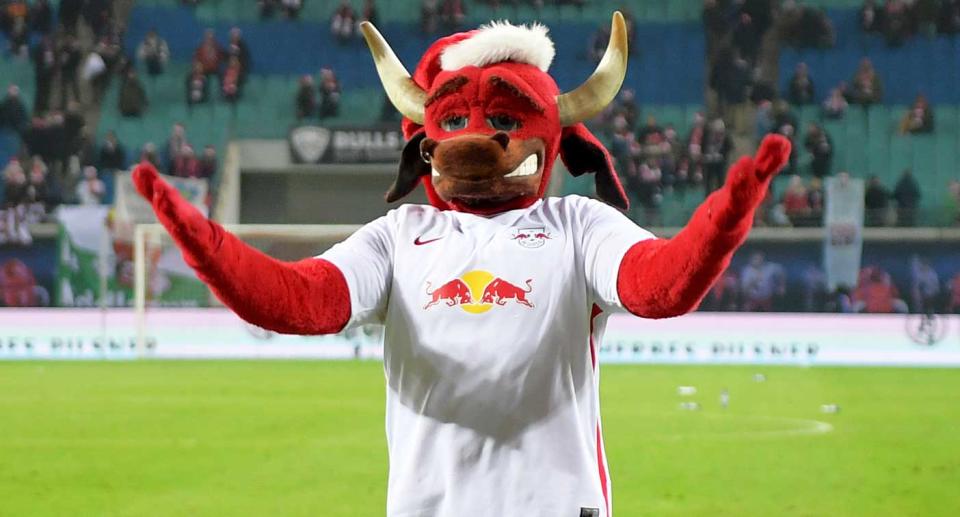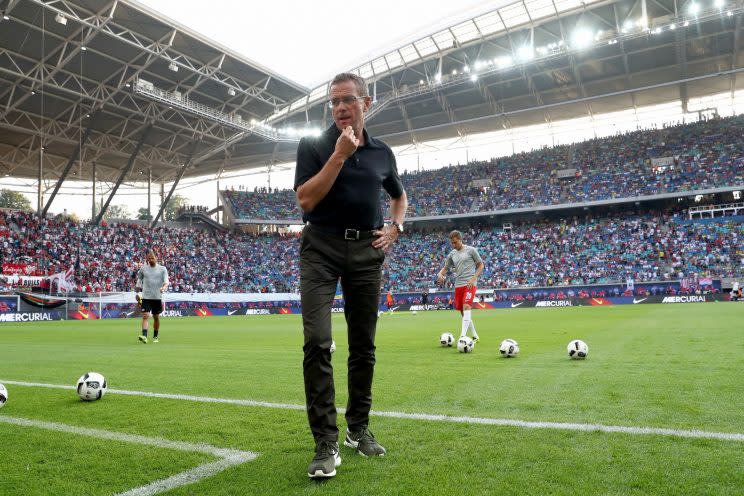As West Ham reject takeover bid, Red Bull could target one of these English teams

Robert Johnson’s blues classic “Crossroads,” tells the mythical story of a man who meets the devil at an intersection to sell his soul in exchange for awesome musical powers. The lowly traveling guitarist puts a huge price on his own spirit and integrity in order to achieve fame, fortune and widespread recognition.
You could argue that English soccer has made exactly the same deal.
Perhaps it started in 1992, when the top flight was rebranded as the Premier League and huge TV rights were bought up by Rupert Murdoch’s Sky TV. Games were played on Sundays and Monday evenings to suit television audiences. Fans at stadiums were greeted by firework displays, cheerleaders and other new-fangled distractions brought along by the marketers.
In the decades that followed, several English clubs became global behemoths, fueling their growth with stock market flotations and buyouts from foreign billionaires with bottomless pits of petrodollars.
Ticket prices started to creep up. Selling merchandise became as important as winning three points. Fans on the other side of the world were courted with a proposed 39th game and lucrative preseason tours. Clubs exploited their brands so irrepressibly that Manchester United brought in an official diesel engine partner.
Evidently, the English Premier League has a lot in common with a man who sold his soul to the devil at a crossroads.
But in a country where the national sport has fully embraced globalization and consumerism, one boundary of selling out has yet to be crossed: re-branding a club in the name of a corporate sponsor.
Apparently, this was a close call over the summer. According to Jack Sullivan, son of West Ham United co-owner David Sullivan, the Hammers were approached by Red Bull with a £650m ($800m) takeover offer. The club, however, refused.
1/2 Re red bull story in sun today,completely out of date and figures wrong we turned down £650m in august. We have no desire to sell out
— Jack Sullivan (@jsullivanwhu) December 26, 2016
No desire to sell our heritage and be called red bull West Ham. #coyi
— Jack Sullivan (@jsullivanwhu) December 26, 2016
The lack of desire to “sell our heritage” may appear slightly ironic for a club that literally sold its heritage and moved to the London Olympic Stadium over the summer – while adding the word “London” to their crest for added marketing value – but the refusal of an offer to sell for more than three times their reported value suggests a strong opposition to the idea of Red Bull branding in England.
Of course, the energy drink purveyors already boast several soccer clubs in their portfolio. Red Bull Salzburg were formed in 2005 when SV Salzburg sold up, while the New York Red Bulls graced Major League Soccer in 2006 when the MetroStars were rebranded in the name of fizzy drink. Red Bull Brasil were founded in Sao Paolo in 2007, while Red Bull Ghana came along a year later.
The most controversial – and arguably successful – of the Red Bull clubs is RB Leipzig, which has climbed to the summit of the Bundesliga after purchasing a German fifth division team in 2009.
If a global corporate sponsor wasn’t attached, it would be the kind of fairytale climb through the ranks that would draw universal admiration. Instead, RB Leipzig are lambasted for their exploitation of the rules and unwelcome introduction of cynical consumerism to the German game.
It is likely that a Red Bull-branded team would be equally controversial in the English system. For reasons that aren’t quite clear, the transformation of a club into a sports drink marketing exercise would certainly draw more derision than a London club that bought its success through an oligarch with a dubiously obtained fortune and a Manchester team whose American owners use it as a vehicle to service other debts.

It has been widely reported that Red Bull are looking to add an English club to their portfolio, with several approaches having been made over the last few years.
So, which English clubs could realistically earn a Red Bull suffix in the coming years? Here are some of the leading contenders.
Leeds United
After making the Champions League semifinals in 2000, the Yorkshire club fell out of the Premier League in 2004 and suffered a financial implosion that saw them drop down to League One. Now with the Whites under the ownership of highly controversial and highly combustible owner Massimo Cellino, Leeds fans are keen to see a change of ownership and a push back to the big time.
There have been on-going talks with Red Bull, and a £60m ($73m) deal was said to be in “advanced stages” in 2015. Cellino has admitted he has been approached by the company, but he remains in steadfast control.
Supporters would welcome a change from the Cellino regime and an owner that could genuinely push them back to the upper echelons of the game, but a name change for the 97-year-old side might not be quite so popular.
Charlton
Leeds fans may not like their owner, but they have nothing on the loathing that Charlton supporters feel towards their man in charge: Roland Duchatelet. The Belgian owner has been extremely trigger happy with managerial sackings, has brought in many underperforming players from the four other clubs he owns across Europe, has no chief scout or director of football, has allowed the ticket office to be used as a call center for another business and recently called the fans “dumb” on Belgian TV.
Duchatelet couldn’t be any less popular in South London if he tried. Charlton fans frequently protest their owner at games and they even picketed him while he was having a birthday meal with his family in Belgium. There seems to be some incentive for him to move on from the club.
Charlton are a former Premier League side with the infrastructure and fanbase to make a return to the top. If Duchatelet can be persuaded to relinquish his grip, the fans would probably find a name change a highly acceptable part of the bargain.
Swindon Town
BREAKING: Red Bull are apparently in advanced talks to take over Swindon Town.
Red Bull Swindon. pic.twitter.com/a9zM5kjf2q
— Team FA (@TeamFA) November 10, 2016
In November, Swindon Town scheduled a press conference for a “significant announcement” that was rumored to be a Red Bull takeover. They even put cans of the stuff on the table of the press conference room.
But in the end, they used the allotted time to unveil Tim Sherwood as Director of Football. The moment was even flatter than a can of Red Bull left open overnight.
Despite that unfilled takeover rumor, Swindon have all the hallmarks of a club that could be purchased. They are wallowing in the third tier, have a relatively small fanbase that would provide relatively low opposition to a name change and, much like Leipzig, could bring success to an area of the country that has lacked it for a long time.
MK Dons
The most suitable club for a rebranding might be the one that has already gone through a rebranding.
In 2004, a business consortium bought the league place of Wimbledon FC and moved the team north to Milton Keynes, effectively killing off the original club and becoming the UK’s only franchised team.
It was a highly controversial move, but they now boast a fanbase who intrinsically have no issue with the commercialism of the modern game: Their club was started to fulfill a lucrative property deal. So you can’t sell a club’s soul if it doesn’t have one!
Not only would MK Dons provide a relatively unobstructed path to unrestrained Red Bull promotion, but they are based in the same city as the world-beating Red Bull Formula 1 team. Just imagine the synergy.
“RB MK Dons” is a bit of a mouthful, but there has long been a campaign for the maligned club to “Drop the Dons” from their name. “Red Bull Milton Keynes” could be viable if their extremely unpopular owner Pete Winkelman can be persuaded to sell up.



